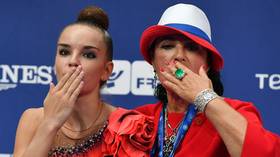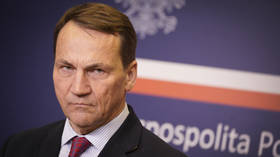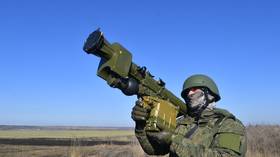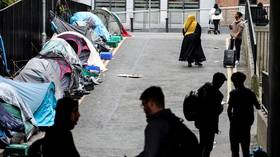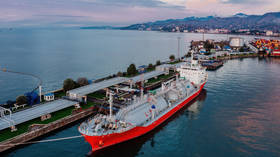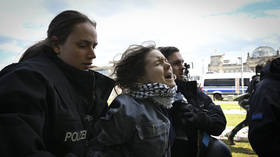Russian gymnastics icon explains ‘benefits’ of sanctions
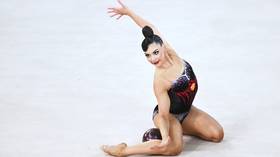
Russian gymnasts can benefit from the sporting sanctions imposed on the country as more talent can be showcased at specially arranged domestic events, according to coaching icon Irina Viner.
Just like their counterparts across numerous other sports, Russia’s gymnasts find themselves sidelined from major international events following a ban imposed by governing body the FIG back in March.
In the face of suspensions, Russian officials have organized alternative events for the nation’s athletes, including the ongoing ‘Spartakiad’ series of tournaments across a range of sports.
The rhythmic gymnastics ‘Spartakiad’ concluded in Moscow on Wednesday, with 17-year-old Lala Kramarenko taking top spot in the individual all-around event. Olympic silver medalist Dina Averina finished in second while Anna Popova came third.
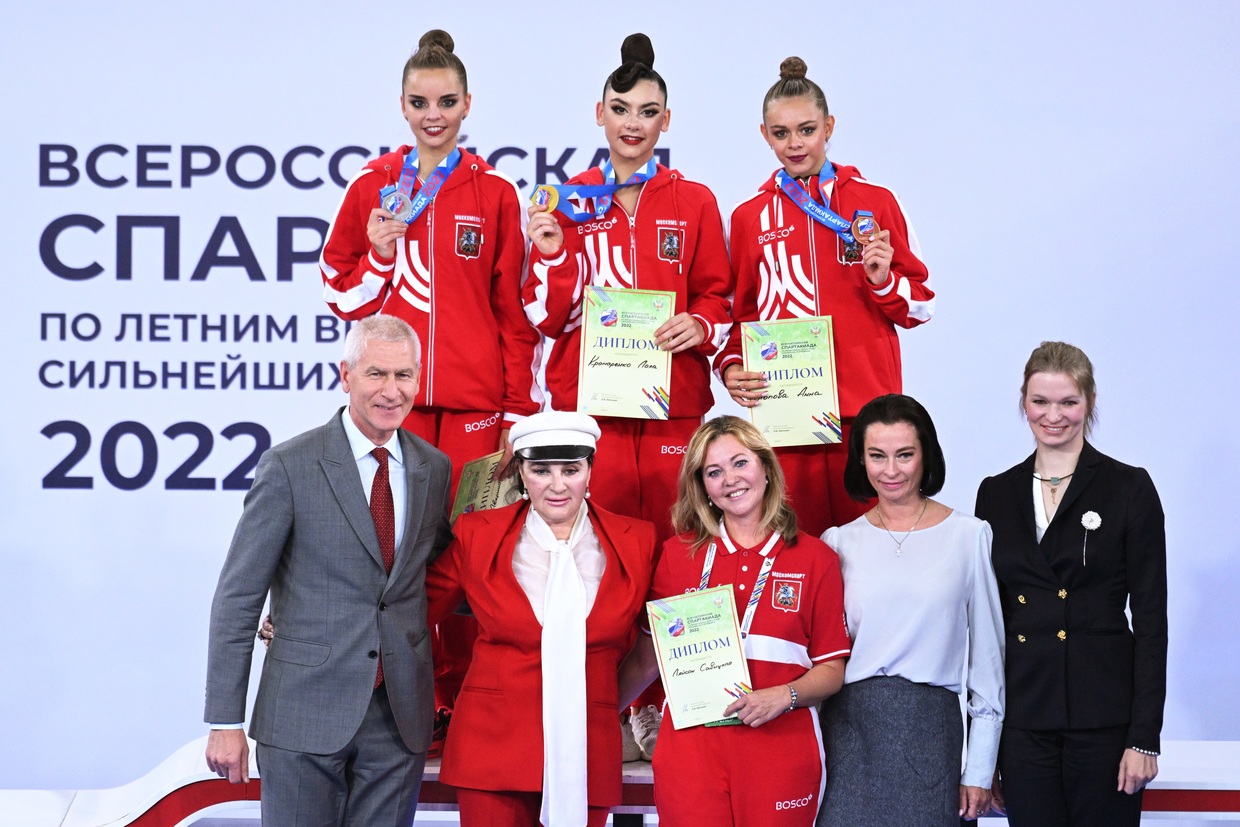
“We prepared without interruption and did not think that in the absence of international competitions we could take a break and do something else,” said Viner after the event at the rhythmic gymnastics center in Moscow which is named in her honor.
“Although we began to organize [exhibition] performances and variety performances… we continue to work just as we prepared for the World Cup or the Olympic Games.
“Our countries now are the regions of Russia, we have a huge country, we are getting a real world championship,” added Viner, who is president of the Russian Rhythmic Gymnastics Federation and has coached a steady stream of Olympic and world champions down the years.
“Usually, in the all-around finals at international competitions, we had two people according to the regulations, and now there were 25 of them, and we are very happy about this.
“Thanks to the sanctions, we are now ‘in trend’ and have entered the big stage. The whole of Russia sees them, and the girls themselves are very pleased – they perform in the hall at the level of world standards.”
The tournament in the Russian capital concluded just as the World Rhythmic Gymnastics Championships got underway in Sofia, Bulgaria – minus the likes of rising Russian star Kramarenko or 18-time world champion Dina Averina and her twin sister Arina, who is a five-time world champion.
Viner vowed back in April that Russian gymnastics would continue to develop in spite of sanctions.
The coaching icon also argued that world gymnastics would “lose its relevance completely” in the absence of the traditionally strong competition provided by Russian stars.
